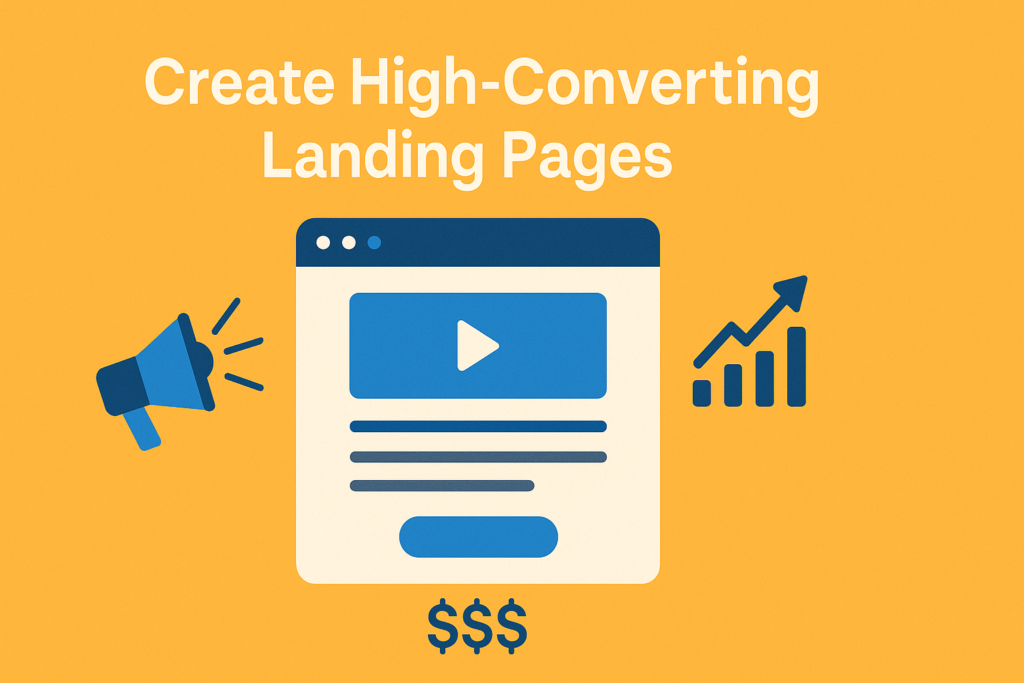In digital business, your landing page is your first impression—and it often determines whether a visitor converts or clicks away.
Unlike your homepage, a landing page is laser-focused. It’s designed for a single action—sign up, book a call, download a lead magnet. That clarity is what makes it powerful.
Let’s explore why purpose-built landing pages are essential for funnel success, and how you can use them effectively at every stage of your sales journey.
Where Are Landing Pages Used in a Funnel?
Landing pages are used across various stages of the customer journey:
- Lead Generation Campaigns
- From Facebook or Google Ads
- From email marketing CTAs
- From social media links or QR codes
- Lead Magnets & Offers
- Downloading a free eBook, checklist, webinar
- Claiming a limited-time discount or offer
- Pre-Qualification
- Before a sales call booking
- Before onboarding to segment lead types
- Retargeting or Re-engagement
- Warming up cold leads
- Collecting updated info from existing contacts
By using dedicated landing pages instead of generic links, you keep the message and offer relevant to each campaign—this boosts trust and conversions.
Why Purpose-Built Works Better Than Generic
Generic pages try to do too much. Landing pages do one thing exceptionally well.
✔️ They match ad copy for better relevance (and lower ad costs)
✔️ They remove distractions—no menus or unrelated links
✔️ They simplify decisions with clear CTAs
✔️ They help segment and qualify leads with custom forms
You wouldn’t sell shoes in a grocery store aisle. Don’t pitch your offer on a homepage full of unrelated content.

Best Practices for a High-Converting Landing Page
Here’s what every effective landing page should include:
- 🧲 A Clear, Benefit-Driven Headline
- 📷 Visuals That Support Your Message
- 🗂 Minimalist Design (one goal only)
- 📝 Short Form with Relevant Fields
- ✅ Trust Signals – logos, testimonials, badges
- 📢 A Strong, Visible CTA (above the fold)
- 📉 No navigation or external links
Also, integrate your form directly with your CRM (e.g., Zoho, HubSpot, GoHighlevel, Vtiger) to immediately trigger follow-ups, alerts, and lead tracking.
Real-World Example: From Click to CRM in Seconds
Let’s say you’re running a Facebook ad offering a free 7-day business automation checklist.
- 🔗 Ad Click →
- 🖥️ Landing Page (short form with UTM tracking) →
- 🤖 CRM Capture (with Zapier automation) →
- 📩 Automated Welcome Email + Follow-Up Flow →
- 📊 Lead Source Attribution + Dashboard Reporting
This smooth journey would not be possible with a generic homepage.
Conclusion: Don’t Funnel Traffic—Guide It with Intent
A landing page is more than a web page. It’s a conversion tool, a data collector, and the starting point of your funnel.
If you want to turn traffic into leads—and leads into conversions—a purpose-built landing page is non-negotiable.
👉 Need help building and automating your funnel-ready landing pages?
